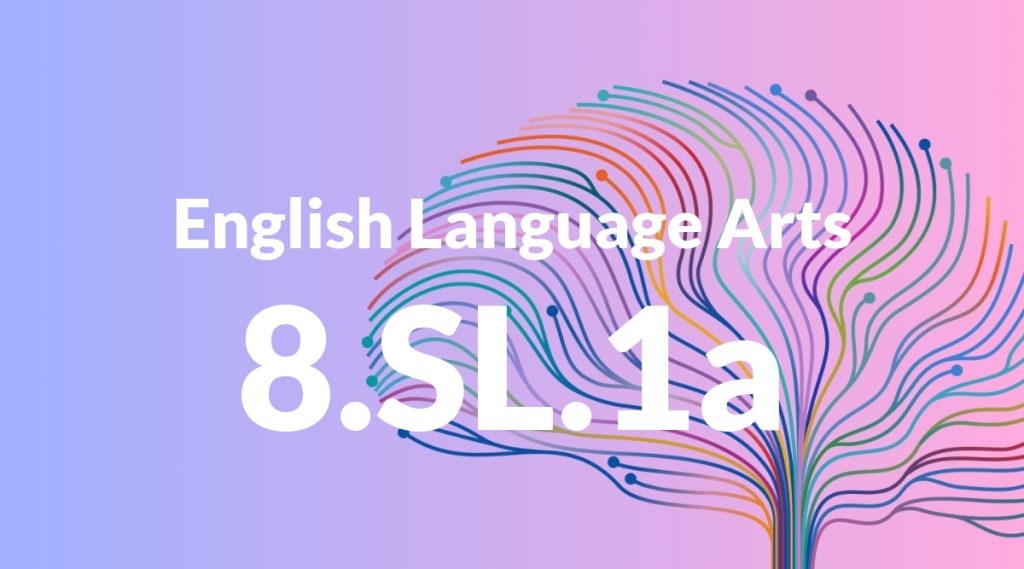Standard: 8.SL.1a – Come to discussions prepared, having read or researched material under study; explicitly draw on that preparation by referring to evidence on the topic, text, or issue to probe and reflect on ideas under discussion.
Grade level: Grade 8
Subject: English Language Arts
Domain: Speaking & Listening
Teacher Overview
This standard emphasizes the importance of preparation and evidence-based discussion in academic settings. By mastering this standard, students will be better equipped to engage in meaningful conversations, support their ideas with evidence, and critically evaluate the contributions of others. Students should already be proficient in reading comprehension, note-taking, and summarizing texts. They should also know how to identify and cite evidence from texts.
After mastering this standard, students will develop advanced critical thinking skills, improve their ability to engage in academic discourse, and enhance their capability to evaluate and synthesize information from diverse sources.
Common Misconception 1
A common misconception is that merely reading the material is enough preparation for discussions. This is incorrect because effective participation requires not only understanding the material but also being able to reference specific evidence during the discussion.
Intervention 1
To address this misconception, teach students to take detailed notes and highlight key pieces of evidence while reading. Practice using these notes in mock discussions to show how preparation enhances participation.
Common Misconception 2
Another misconception is that personal opinions alone are sufficient for discussions. This is incorrect because academic discussions require evidence to support claims, making arguments more credible and persuasive.
Intervention 2
Encourage students to back up their opinions with specific evidence from the text. Provide examples of how evidence strengthens an argument and practice this skill in class discussions.
Prerequisite Knowledge
Students should have basic skills in reading comprehension, note-taking, and summarizing texts. They should also be familiar with how to identify and cite evidence from texts.
Subsequent Knowledge
Students will develop advanced critical thinking skills, improve their ability to engage in academic discourse, and enhance their capability to evaluate and synthesize information from diverse sources.
Instructional Activities
- Organize classroom debates on current events
- Facilitate book club discussions
- Assign group projects and presentations
- Conduct peer review sessions
- Host community meetings or forums




